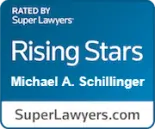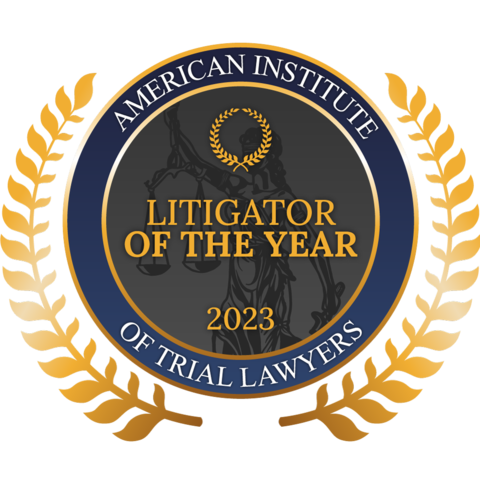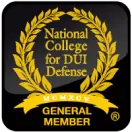Drug crimes in New York State can potentially involve both illegal and legal controlled substances. Even if a substance is otherwise legal, you may potentially be arrested for possessing it if you don’t have a valid prescription in your name to show to police officers.
The degree of crime you are charged with can vary greatly depending upon the specific factual allegations of your case. In fact, drug charges in New York State can range from simple misdemeanors, all the way up to class “A” felonies. In determining the charges, police and prosecutors often look towards the type of substance, the amount of substance, and whether you sold, or intended to sell, the substance. Additionally, depending upon the allegations, you may even find yourself being charged under Federal law, forcing you to answer the charges in the United States District Court. Because the severity of charges can vary greatly, the potential penalties do as well.
Penalties in drug cases can often be severe, and even extend beyond fines and jail time. For example, with a drug conviction on your record, you could be barred from voting or owning any firearms. You may also have trouble finding housing or a job. Furthermore, if you are not a U.S. Citizen, there may be potential immigration consequences that can follow a drug conviction, including deportation. At the Law Office of Michael A. Schillinger, Esq., our dedicated defense team will help you resolve your case without passing any type of judgment. You have a constitutional right to a defense when accused of a crime, and Mike Schillinger is an Astoria drug lawyer who will fight for you.
Possession of a Controlled Substance
Most people know that they can be charged with a drug crime if they are carrying illegal drugs such as heroin, cocaine, and crystal meth. What folks don’t often realize, is that they can also be charged with a drug crime for carrying otherwise legal substances without a proper prescription – i.e. Oxycontin or Xanax. Under NY PL § 220.03, you can be charged with criminal possession of a controlled substance in the seventh degree for knowingly possessing any quantity of a controlled substance unlawfully.
Additionally, possession can be a tricky issue. Folks often don’t realize that they can be accused of possessing a drug, even if it wasn’t directly on their person. For instance when police find drugs that are within your control, but not necessarily in your pockets or on your person, they can potentially charge you under a theory of constructive possession. This happens when the drugs are located in a bag next to you, when they’re located in a vehicle that you’re in, or even if they’re on the floor within your grabbable area.
When police and the prosecutor believe that the drugs found are for personal use, simple possession charges are likely. These charges range based upon the weight of the drugs and whether you intended to sell them, and can include the following:
PL § 220.03 – Criminal possession of a controlled substance in the seventh degree – a class “A” misdemeanor
PL § 220.06 – Criminal possession of a controlled substance in the fifth degree, a class “D” non-violent felony
PL § 220.09 – Criminal possession of a controlled substance in the fourth degree, a class “C” non-violent felony
PL § 220.16 – Criminal possession of a controlled substance in the third degree, a class “B” non-violent felony
PL § 220.18 – Criminal possession of a controlled substance in the second degree, a class “A-2” non-violent felony
PL § 220.21 – Criminal possession of a controlled substance in the first degree, a class “A-1” non-violent felony
To make a possession charge stick, prosecutors must prove beyond a reasonable doubt that you knowingly possessed the narcotics or controlled substances. Unfortunately, sometimes people find themselves getting arrested because their friend or roommate had drugs on them. When that happens, it’s important to know how to fight back against the prosecutors. When they pursue a constructive possession theory, we can sometimes attack the knowing element, arguing that you may have been unaware of the presence of the drugs. In these cases, Mike Schillinger, a tenacious attorney in Astoria, will fight both at the negotiation table and in the courtroom to try and get you a favorable resolution on your case. If you or a loved one has been charged with a drug crime, call us today to discuss how we can resolve your case.
Criminal Sale of a Controlled Substance
If accused of selling a controlled substance in New York State, you may be facing anywhere from a class “D” felony to an “A-1” depending upon the specific facts and circumstances of your case. These cases sometimes involve observation sales, where the police claim that they observed you selling drugs to another person. In these situations, the police may claim that they observed a “hand-to-hand” transaction between you and another person. Depending upon the specifics of your case, we may be able to challenge the credibility of the officers, the distance from which they observed the alleged transaction, and whether there were even any drugs involved.
In some cases, undercover officers get involved. In these situations, police conduct operations called “buy and bust” operations, where they send in an undercover officer to buy drugs from someone, and then once the sale happens they move in.
Mike Schillinger is a drug lawyer in Astoria who has experience in handling all types of drug sale cases. As a former prosecutor, Mike handled numerous cases involving both observation sales and undercover “buys”, and he knows what to look for to help you fight your case. Call Mike today to start planning your defense.
Marijuana Possession
The law treats marijuana differently than other controlled substances. New York legalized recreational marijuana in 2021; however, people can still go to jail for possession if they carry more than three ounces, are under 21, or share their stash with someone under 21.
Drug Offense Categories
New York law distinguishes controlled substances and narcotic drugs. This is important because the severity of the charges against you can range depending upon whether you’re accused of selling a narcotic drug or a controlled substance. For instance, under NY PL § 220.31, a person who knowingly and unlawfully sells a controlled substance can be charged with criminal sale of a controlled substance in the fifth degree – which is a class “D” felony. Alternatively, if you are charged for selling a narcotic drug, you can be charged under NY PL § 220.39, criminal sale of a controlled substance in the third degree – a class “B” felony, which carries significantly longer potential periods of incarceration. As in possession charges, weight can also factor in here as well.
Sometimes prosecutors do not even have to show that someone had physical possession of a controlled substance or personally delivered it. Instead, an agreement or an offer to sell drugs can be enough for an accused person to be convicted. As a seasoned defense lawyer, Mike Schillinger can explain drug offense categories in further detail during a consultation.
Punishment for Selling Controlled Substances
Punishments for drug crimes range significantly depending upon the specific charges and your criminal history. For lesser offenses, you may be eligible for probation, alternative sentencing, fines, or even community service. However, if you are a predicate felon, you may be looking at mandatory prison time. Additionally, if you were convicted with some of the more severe drug-related crimes – i.e. a class “A-2” or “A-1”, you would be looking at mandatory prison time, even if you’re a first-time offender. For instance, a first-time offender convicted of an “A-1” drug felony faces a sentencing range of a minimum of 8 years incarceration, up to a maximum of 20, with a mandatory 5 years post release supervision period following incarceration. Additionally, if convicted of a serious drug felony, you may be looking at some of the following punishments:
- Between 8 and 20 years in prison for minor drug traffickers and then five years of post-release supervision
- Between 12 and 20 years in prison for a second felony drug offense
- Between 15 years to life imprisonment for major drug traffickers
- Fines beginning at $5,000 or twice the defendant’s profit from the sale
- Fines of up to $100,000 for those convicted of first-degree sales or running a major drug ring
These penalties are harsh, and anyone accused of drug crimes in Astoria should immediately contact an experienced attorney like Mike Schillinger. Mike will fight for you every step of the way, and can negotiate with the prosecution for a reduced sentence, case dismissal, treatment program, probation, or another arrangement that does not include prison. Call Mike today to start planning your defense.
A Drug Attorney in Astoria Will Fight To Protect Your Rights
Everyone makes mistakes; if yours involved drugs, let us help you. Mike can tailor a defense to your unique situation and work hard to get you the best possible outcome. When you believe law enforcement suspects you of possessing, selling, manufacturing, or trafficking controlled substances, or when you have been arrested and charged with a drug offense, call Mike immediately.
 N/a
N/a
 N/a
N/a








 Get Directions
Get Directions